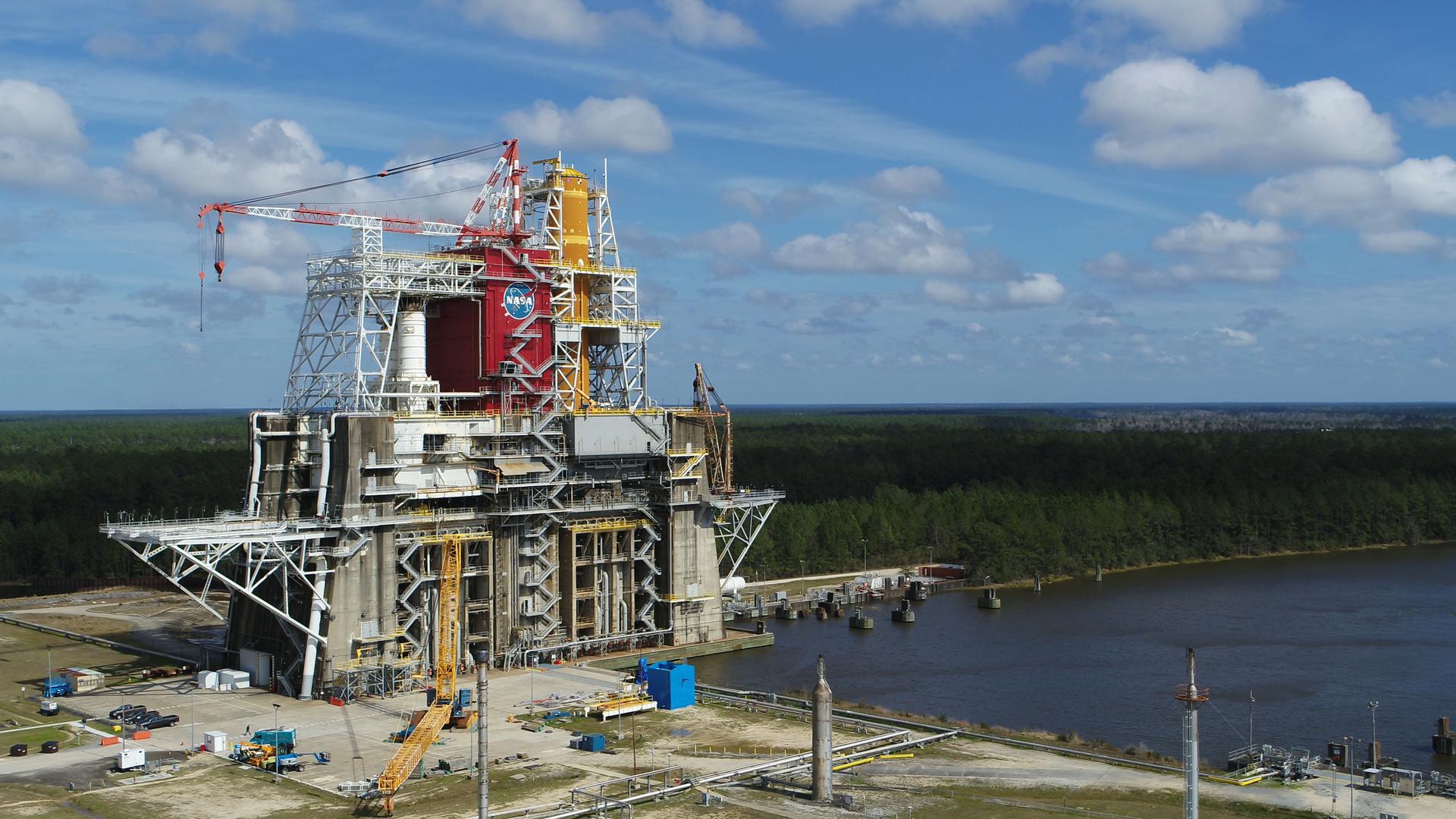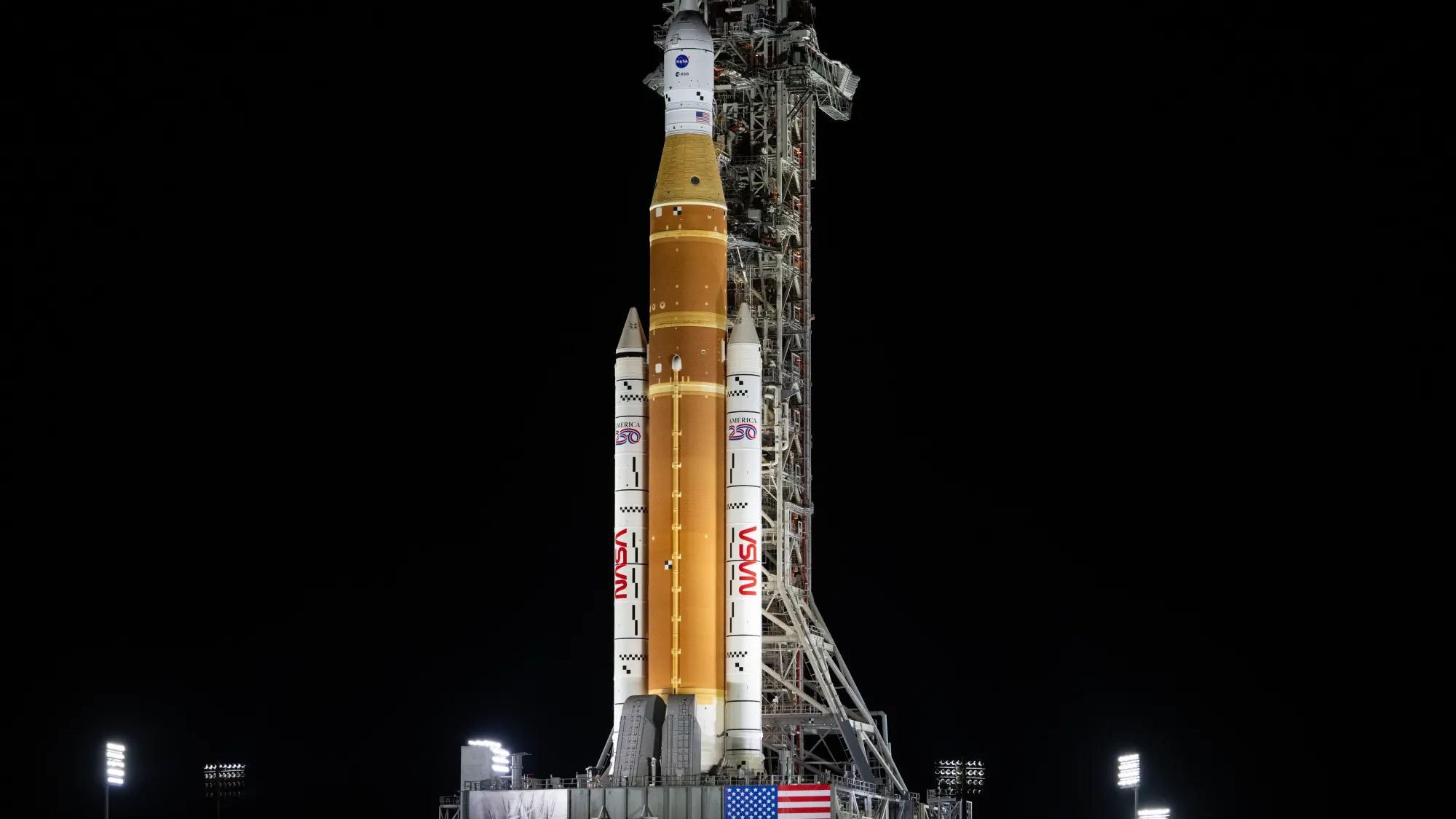NASA delays 2nd test fire of SLS megarocket booster due to valve issue

NASA's moon megarocket is facing yet another testing delay ahead of the vehicle's expected first flight for the Artemis program.
For months, NASA personnel have been conducting a series of tests called a "green run" on the first core stage of the agency's massive new rocket, the Space Launch System (SLS). The tests are occurring at the NASA Stennis Space Center in Mississippi ahead of being shipped to Florida for the uncrewed Artemis 1 launch from the NASA Kennedy Space Center, near Orlando.
In a short update Monday (Feb. 22), NASA said it is "reviewing the performance of a valve on the core stage" of the SLS, forcing the agency to delay the second "hot fire" test. A new date for the hot fire has not yet been announced.
Video: How NASA's SLS megarocket engine test works
The agency confirmed that the valve in question worked properly during the first hot fire test, conducted on Jan. 16. That procedure ended after only 67 seconds, instead of the planned eight minutes, prompting the agency to schedule the upcoming second test to gather all the required data for confirming the rocket works as planned.
That test was scheduled to occur on Feb. 25. But during checkout preparations last weekend, engineers found that one of the eight valves on SLS "was not working properly," according to NASA, prompting the delay. The green run process has been hitting delays since late 2020, when the seventh test in the series, a "wet dress" rehearsal, also needed two takes.
NASA was facing a tight deadline to get the SLS rocket shipped to Kennedy for a planned uncrewed flight around the moon by the end of the year, a milestone in the schedule for landing humans on the moon for Artemis 3 in 2024.
Breaking space news, the latest updates on rocket launches, skywatching events and more!
Recent weeks have seen some hints that the 2024 deadline may no longer be a firm goal, however. Earlier this month, the administration of President Joe Biden committed to continuing work to land humans on the moon , but the discussion contained no language about the 2024 goal, established by President Donald Trump's administration.
Further, acting NASA administrator Steve Jurczyk — just appointed last month when the administration turned over — recently told Ars Technica he felt the deadline was no longer "realistic," given that NASA has not received its full request for Artemis appropriations in past budgets — including the human landing system (HLS). NASA also paused the selection process for HLS earlier this month.
Follow Elizabeth Howell on Twitter @howellspace. Follow us on Twitter @Spacedotcom and on Facebook.

Elizabeth Howell (she/her), Ph.D., was a staff writer in the spaceflight channel between 2022 and 2024 specializing in Canadian space news. She was contributing writer for Space.com for 10 years from 2012 to 2024. Elizabeth's reporting includes multiple exclusives with the White House, leading world coverage about a lost-and-found space tomato on the International Space Station, witnessing five human spaceflight launches on two continents, flying parabolic, working inside a spacesuit, and participating in a simulated Mars mission. Her latest book, "Why Am I Taller?" (ECW Press, 2022) is co-written with astronaut Dave Williams.
